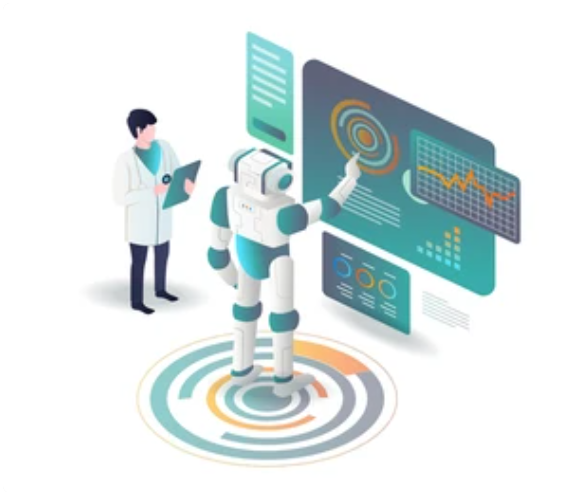Machine Learning in Healthcare: Improving Diagnostics and Treatment
Machine learning is revolutionizing the healthcare industry by improving diagnostics and treatment processes. It offers the potential to analyze vast amounts of patient data, identify patterns, and generate actionable insights to enhance healthcare outcomes. Here's a detailed explanation of machine learning applications in healthcare:
Medical Imaging and Diagnosis:
Machine learning algorithms can analyze medical images such as X-rays, MRIs, and CT scans to aid in disease detection and diagnosis. Deep learning models, such as convolutional neural networks (CNNs), have shown remarkable accuracy in detecting abnormalities and assisting radiologists in making more accurate diagnoses.
Disease Prediction and Risk Stratification:
Machine learning models can analyze electronic health records, genomic data, and other patient data to predict disease risks. By leveraging large datasets, these models can identify patterns and factors that contribute to disease development. This information enables early intervention, personalized treatment plans, and proactive healthcare management.
Precision Medicine:
Machine learning facilitates personalized medicine by analyzing individual patient data, including genetic information, lifestyle factors, and medical history. These models can identify treatment options tailored to a patient's specific characteristics, improving treatment effectiveness and minimizing adverse effects.
Drug Discovery and Development:
Machine learning algorithms can assist in the process of drug discovery and development. By analyzing vast amounts of biological and chemical data, these models can identify potential drug candidates, predict their efficacy, and optimize their molecular properties. This speeds up the drug discovery process and reduces costs.
Clinical Decision Support Systems:
Machine learning can power clinical decision support systems, providing healthcare professionals with evidence-based recommendations. These systems analyze patient data, medical literature, and clinical guidelines to support diagnosis, treatment planning, and monitoring of patient progress. They can help identify potential drug interactions, suggest appropriate tests, and offer treatment recommendations.
Patient Monitoring and Remote Care:
Machine learning models enable continuous monitoring of patient vital signs, symptoms, and other health-related data. This allows healthcare providers to remotely monitor patients and detect any deviations or anomalies that require immediate attention. Machine learning algorithms can predict patient deterioration, reducing the risk of adverse events and hospital readmissions.
Natural Language Processing and Electronic Health Records:
Machine learning techniques, combined with natural language processing, enable efficient analysis of unstructured medical data, such as clinical notes and patient narratives in electronic health records (EHRs). This improves information extraction, coding accuracy, and data mining capabilities for research and decision-making.
Fraud Detection and Healthcare Management:
Machine learning algorithms can identify patterns of fraudulent activities in healthcare billing systems and insurance claims. These models can detect anomalies, suspicious behavior, and patterns indicative of fraud, minimizing financial losses and ensuring fair healthcare practices.
It is important to note that the adoption of machine learning in healthcare requires careful consideration of data privacy, security, and regulatory compliance to ensure patient confidentiality and ethical use of data. Machine learning models should undergo rigorous validation, interpretability, and transparency assessments to gain trust from healthcare professionals and patients.
Overall, machine learning has the potential to revolutionize healthcare by improving diagnostics, treatment, patient outcomes, and healthcare management. Its ability to analyze vast amounts of data and extract valuable insights has the potential to transform healthcare delivery and drive better patient care.











